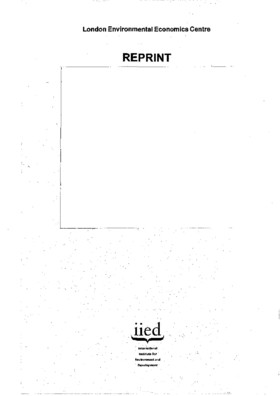Timber trade and tropical forests: modelling the impacts of supply constraints, trade constraints and trade liberalisation, The

Recent environmental concern about tropical deforestation highlights the need to examine trends in global timber markets and to investigate the potential impacts of trade policy interventions. Simulation analysis shows that global competitiveness determines the impact of policy alternatives. Sustainable tropical timber management is made economically possible by higher timber prices. Various trade, environmental and timber supply policies will impact regional and global wood supplies and demands affecting timber prices. To evaluate the potential impact of various policies on the setting for tropical timber management, it is necessary to evaluate the impact of changing trade flows from a number of different supply regions to consuming countries, in effect evaluating the charging competitiveness of global trade. The CINTRAFOR Global Trade Model (CGTM) for forest products was used to construct a short-term baseline projection and then examine the impact of changes of baseline conditions by i)constraining supply ii)introducing trade constraints, and iii) reducing tariffs and trade barriers as a move towards trade liberalisation. A long-term policy scenario was also constructed to illustrate possible implications for sustainable management.
Cite this publication
Available at https://www.iied.org/8035iied